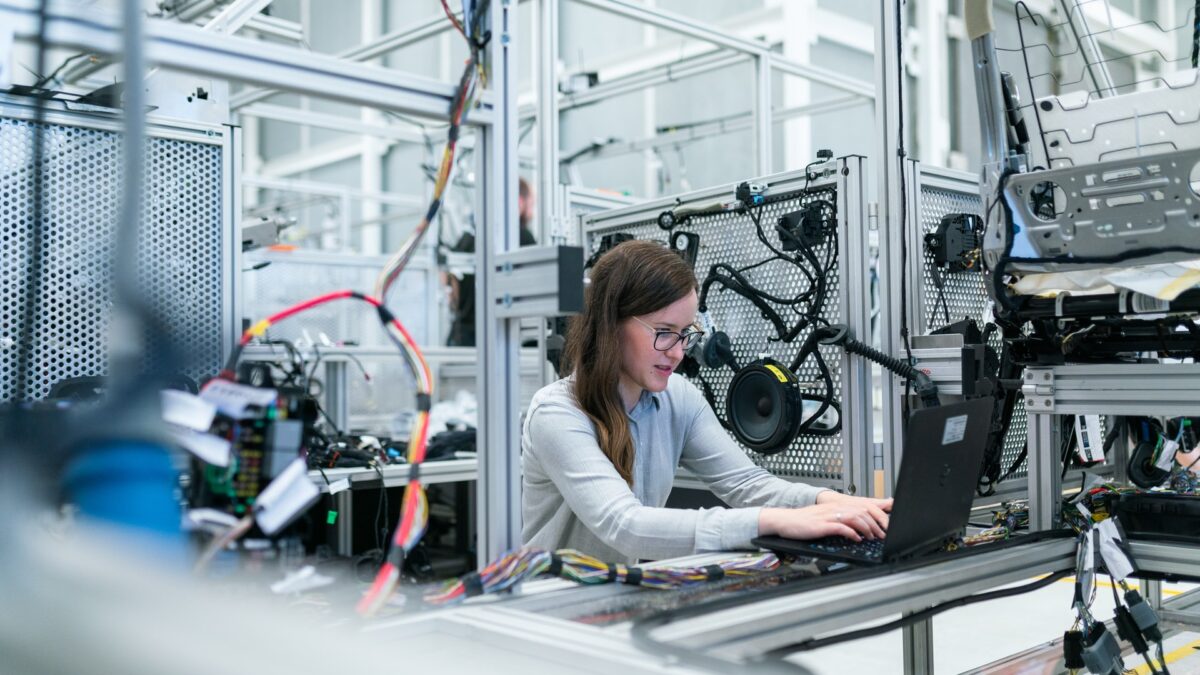An Overview of Computer Engineering
Computer engineering is a multifaceted field that intertwines the principles of electrical engineering and computer science to create, develop, and optimize computing systems. It’s a discipline that not only powers the devices we use daily but also drives innovations that shape the future of technology. From microprocessors to complex software systems, computer engineers are the architects behind the digital world’s infrastructure.

The Core Components of Computer Engineering
Hardware Design and Development
At the heart of computer engineering lies hardware design and development. This area focuses on the creation of physical components that constitute computing systems. Microprocessors, which are the brains of any computing device, exemplify the complexity and precision involved in hardware design. Engineers work meticulously to design integrated circuits (ICs) that perform specific tasks efficiently while minimizing power consumption and heat generation.
As semiconductor technology advances, the trend toward miniaturization continues. Moore’s Law, which predicted the doubling of transistors on a microchip approximately every two years, has driven the relentless pursuit of smaller, faster, and more efficient hardware. However, as transistors reach atomic scales, engineers face the challenge of overcoming quantum effects that could hinder further progress. Thus, new paradigms such as quantum computing and neuromorphic engineering are being explored to transcend the limitations of traditional semiconductor technology.
Embedded Systems
Embedded systems represent another critical facet of computer engineering. These specialized computing systems are designed to perform dedicated functions within larger mechanical or electrical systems. Unlike general-purpose computers, embedded systems are optimized for specific tasks, making them integral to a wide array of applications, from consumer electronics to industrial automation and medical devices.
In the automotive industry, for instance, embedded systems control everything from engine performance to safety features like anti-lock brakes and airbags. In healthcare, they power life-saving equipment such as pacemakers and insulin pumps. The design of embedded systems requires a deep understanding of both hardware and software, as well as the ability to integrate these components seamlessly into the broader system.
The Role of Software in Computer Engineering
Operating Systems and Software Development
While hardware forms the foundation of computing systems, software brings them to life. Operating systems (OS) are the linchpins of software development in computer engineering. They manage hardware resources, facilitate user interaction, and provide a platform for running application software. Engineers develop operating systems with a focus on efficiency, security, and reliability, ensuring that they can handle the complex demands of modern computing.
Beyond operating systems, computer engineers are involved in developing software that controls and optimizes hardware performance. Firmware, for example, is a type of low-level software embedded in hardware devices, enabling them to function as intended. Developing such software requires a comprehensive understanding of the hardware it interacts with, as well as expertise in programming languages such as C and assembly.
Algorithm Design and Optimization
Algorithm design is another cornerstone of computer engineering. Algorithms are the set of instructions that dictate how a computer processes data to solve problems. Efficient algorithms are crucial for optimizing performance, particularly in systems with limited computational resources. Computer engineers design and refine algorithms to ensure they can handle large datasets, execute tasks in real-time, and minimize computational complexity.
The field of algorithm optimization is particularly important in areas like data processing, machine learning, and cryptography. For instance, in machine learning, engineers develop algorithms that can learn from vast amounts of data, recognize patterns, and make decisions autonomously. Optimizing these algorithms is essential to ensure they perform efficiently, especially when deployed in resource-constrained environments like mobile devices or embedded systems.
Emerging Trends in Computer Engineering
Artificial Intelligence and Machine Learning
Artificial Intelligence (AI) and machine learning are revolutionizing the field of computer engineering. These technologies rely on advanced algorithms and powerful hardware to process and analyze data at unprecedented scales. Computer engineers are at the forefront of developing AI systems that can perform tasks ranging from image recognition to natural language processing, and even autonomous driving.
The integration of AI into computer systems requires significant advancements in both hardware and software. On the hardware side, engineers are developing specialized processors, such as Graphics Processing Units (GPUs) and Tensor Processing Units (TPUs), designed to accelerate AI workloads. On the software side, they are refining machine learning frameworks and optimizing algorithms to improve the efficiency and accuracy of AI systems.
Cybersecurity and Privacy
As digital systems become increasingly integral to every aspect of modern life, cybersecurity and privacy have emerged as critical concerns in computer engineering. Protecting sensitive data from unauthorized access and ensuring the integrity of computing systems are paramount. Engineers work to develop encryption algorithms, secure communication protocols, and intrusion detection systems to safeguard against cyber threats.
Privacy is another area of focus, particularly in light of the growing prevalence of data-driven technologies. Engineers must balance the need for data collection and analysis with the protection of individual privacy rights. This involves developing technologies that enable secure data storage and transmission, as well as methods for anonymizing data to prevent the identification of individuals.
The Future of Computer Engineering
The future of computer engineering is one of boundless potential and complex challenges. As technologies like quantum computing, AI, and the Internet of Things (IoT) continue to evolve, computer engineers will play a pivotal role in shaping the trajectory of innovation. They will need to navigate the ethical implications of their work, ensure the sustainability of technological progress, and continue pushing the boundaries of what is possible in the digital age.